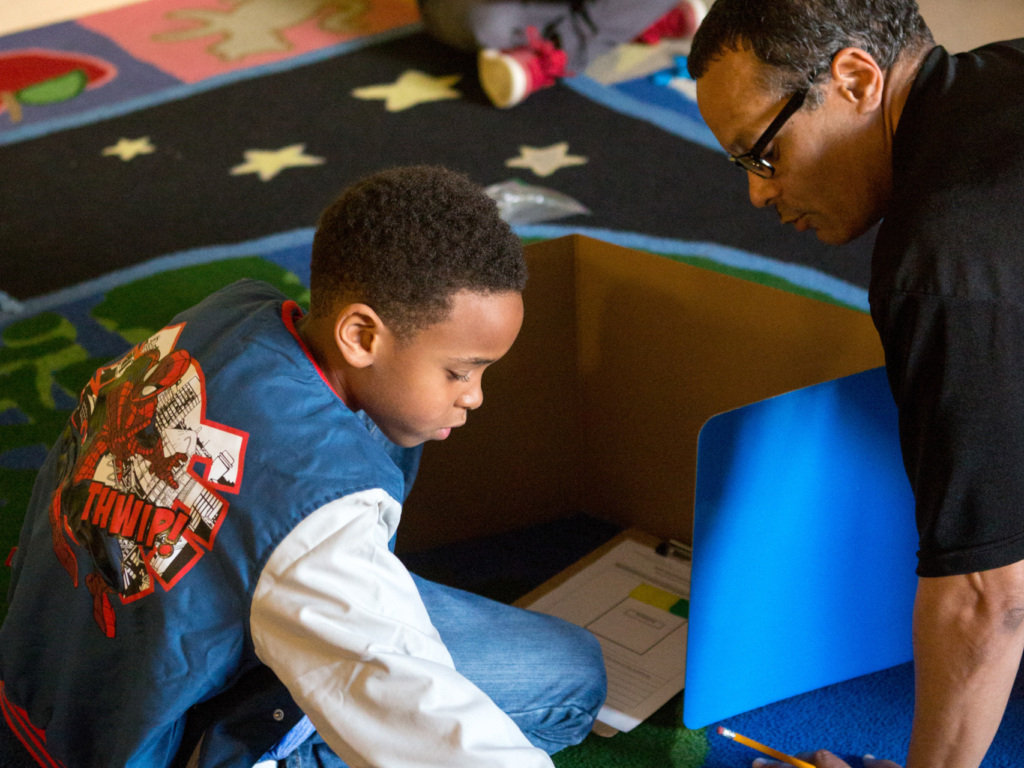Policy Solutions
Priorities for 2024-25
Before the beginning of each legislative session, our EdVoice and EdVoice Institute teams–along with our many coalition partners–use EdVoice Institute’s evidence-based policy agenda as a guide in determining which specific legislative policies we are going to propose, sponsor, and support (or defend against) based on several factors. This year, we are choosing to focus on both the Evidence-Based Early Literacy & Numeracy Pillar and the High-Quality, Diverse Educators Pillar.
1. Comprehensive Early Literacy Solutions
EdVoice Institute, our sister organization, and its California Early Literacy Coalition partners have published an Early Literacy Policy Brief proposing a research-based early literacy policy agenda anchored in the science of reading that, if passed and implemented effectively, will help California accelerate its path toward literacy for all students by the third grade.
We have used these recommendations to sponsor Assemblymember Rubio’s comprehensive early literacy reform legislation (AB 2222) and will use our influence to push this bill forward in Sacramento. Learn how you can support.
2. Qualified Educators in High-Needs Schools
There is a growing teacher shortage crisis in California’s high-needs schools. Students of color and students from low-income communities who do not have consistent, experienced teachers are often taught by underprepared teachers and substitute teachers which leads to decreased student achievement and unstable relationships with staff members.
Furthermore, schools serving students from low-income communities also experience more vacancies and higher turnover rates, negatively impacting the opportunity for students to learn at similar rates as others.
Introducing Opportunity-Filled Futures: EdVoice Institute's Policy Agenda to Reshape California's Public School System
California’s legislative policies, school-based practices, and accountability measures do not sufficiently prioritize nor equitably support children from low-income communities. Despite these inequities, children from low-income communities often receive fewer supports and face more challenges than their higher-income peers.
We know what needs to be done to solve the education crisis in California. With decades of experience in education, social justice, and racial equity, our sister organization, EdVoice Institute, has developed a long-term, comprehensive policy agenda to ground our policy recommendations and advocacy actions during each legislative cycle.
The agenda includes five priority policy pillars (outlined below) that we believe are critical in reshaping California’s public education system to meet the needs of all students.
Many higher-income students already have access to these key focus areas either through their higher performing public schools or through supplemental supports–often funded by their parents/caregivers–such as after-school tutors, mental health supports, enrichment activities, and more, as well as greater academic engagement at home.
By focusing on these key pillars–as well as three foundational conditions necessary to deliver on each area–we can level the playing field so that all children are academically and socially-emotionally prepared for futures filled with opportunity.
Foundational Conditions
Transforming policies and practices across these five pillars will significantly benefit students from low-income communities, but the pillars alone are insufficient. To truly deliver results across these critical pillars, it is also necessary to improve the following foundational conditions of our public education system:
- Adequate and Equitable Funding: Adequate and equitably-distributed funding is essential to sustaining a high-quality education for all students from low-income communities.
- Accountability, Continual Learning, and Collaboration: Good policies require schools to create systems of accountability, continual learning, and collaboration to support growth and development while maintaining high standards and interventions when needed.
- Stability of Students’ Basic Needs: Studies show that students learn best when they are safe and supported, not just academically but more broadly. We will support partners as they lead efforts to pass policies that address food and housing insecurity, healthcare access, and other areas that significantly impact students’ ability to learn and access opportunities.
Join The Movement
Sign up to receive important legislative updates and advocacy opportunities, education research reports, special events, and more!





